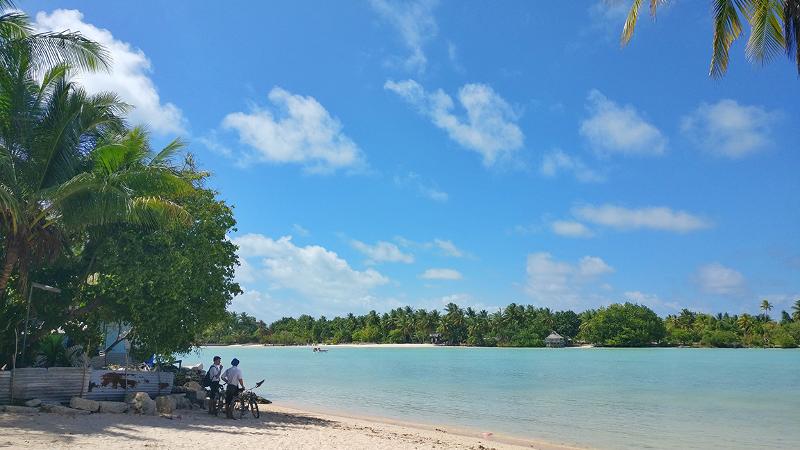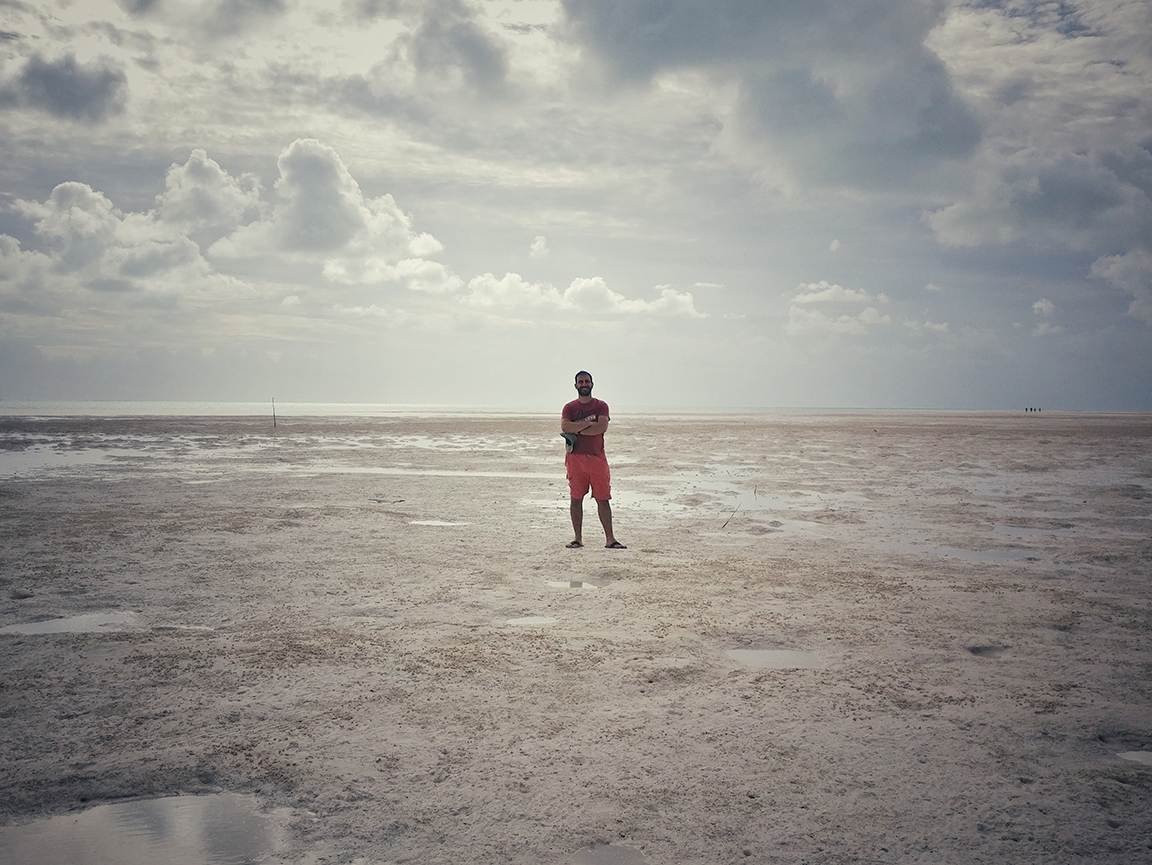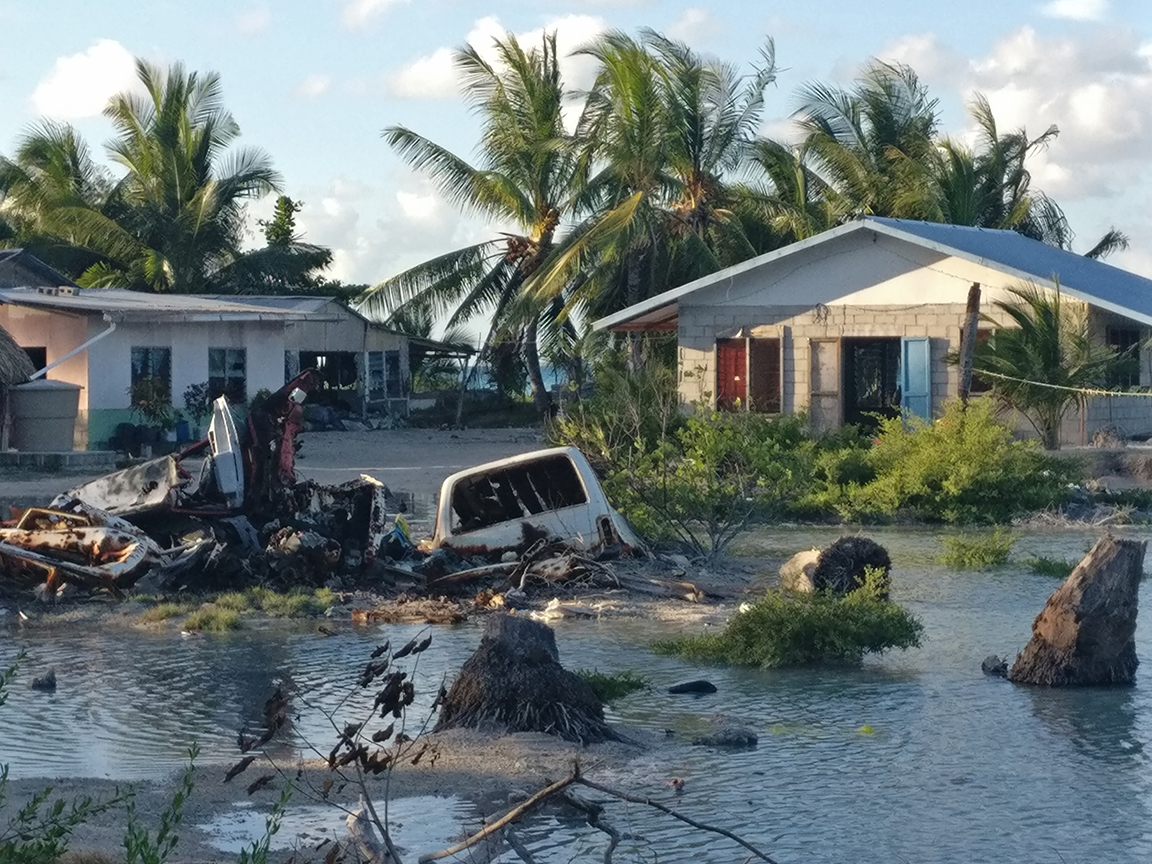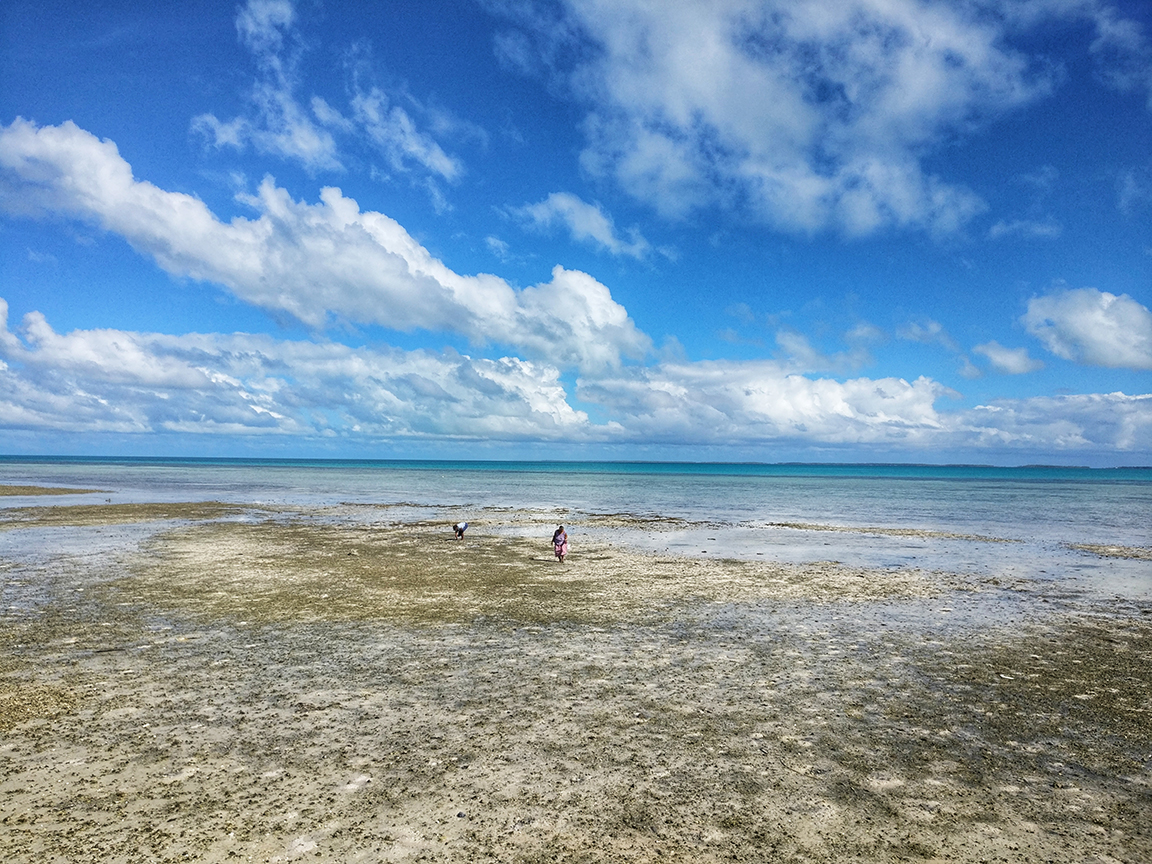
For many years, we have heard about the impact of climate change on our environment, but now a QUT researcher is investigating the associations between rising sea levels and expanding waistlines.
Dr John Paul Cauchi, who has a medical degree and a masters in Environmental Public Health and is now undertaking his PhD with QUT’s Faculty of Health, was prompted to examine the issue as part of his thesis on climate change, food security and health, after a visit to the Pacific Island nation of Kiribati.

“Typical of urban Kiribati, I kept looking through stall after stall along the roadside in South Tarawa, searching for healthy and nutritious food to cook, but I kept encountering the same options: bags of white rice, packets of instant noodles, tinned corned beef and occasionally some fish. I walked for kilometres before locating vegetables and even these weren’t fresh, but frozen,” Dr Cauchi said.
“Atoll islands, which are the main island type in Kiribati, are coral islands with poor soil, usually one to two metres above sea level, and often just 200 to 300m wide at most. This all makes them highly vulnerable to climate change.
“As sea levels are rising, salt water is entering the atolls’ aquifers, which makes it harder to grow crops. King tides also sweep over large swathes of the islands once or twice a year, destroying crops and vegetable gardens.”

Dr Cauchi believes the issues of food security and obesity in the region are intrinsically linked; however, as part of his research, he will also explore economic factors and cultural preferences, as reasons for the change in diet.
“The people in Kiribati are becoming increasingly reliant on importing food, but because they have low purchasing power, the food they get is of poor nutritional quality. The impact on their health is devastating.
“Forty-five per cent of the people in Kiribati are now obese and 25 per cent have diabetes. High blood pressure prevalence is through the roof.”
Dr Cauchi’s presentation of his research topic recently saw him win QUT’s “three minute thesis” competition, which sees PhD researchers condense three years of work into just three minutes.
This week Dr Cauchi will represent QUT at the 2018 Asia-Pacific finals.
 “It is certainly a challenge to explain a complex topic in a very short period of time, to a non-specialist audience, but it makes you really think about your research and how it has the potential to impact a community in a positive way, so you can share that effectively with a much broader audience and encourage them to sit up and take notice of the issue,” he said.
“It is certainly a challenge to explain a complex topic in a very short period of time, to a non-specialist audience, but it makes you really think about your research and how it has the potential to impact a community in a positive way, so you can share that effectively with a much broader audience and encourage them to sit up and take notice of the issue,” he said.
Dr Cauchi will soon return to Kiribati to commence his field work.
Media Contact:
(07) 3138 9449 | media@qut.edu.au | 0407 585 901 (Afterhours)


